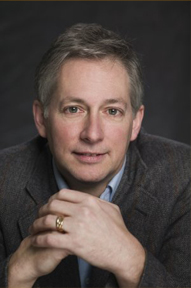 Ed Seidel, NSF’s Assistant Director for Mathematical and Physical Sciences and formerly the Director of the Foundation’s Office of Cyberinfrastructure, today delivered a presentation at Northwestern University on “Data and the Compute-Driven Transformation of Modern Science” as part of a quarterly seminar jointly sponsored by the school’s Physics and Astronomy departments. Seidel noted the exponential growth in the last couple of decades in data from scientific experiments and simulation, and in the computational power to deal with it, and he emphasized the greater need for collaboration. No longer can science be done with just a single professor working with just a couple of students. “Software is the Modern Language of Science.”
Ed Seidel, NSF’s Assistant Director for Mathematical and Physical Sciences and formerly the Director of the Foundation’s Office of Cyberinfrastructure, today delivered a presentation at Northwestern University on “Data and the Compute-Driven Transformation of Modern Science” as part of a quarterly seminar jointly sponsored by the school’s Physics and Astronomy departments. Seidel noted the exponential growth in the last couple of decades in data from scientific experiments and simulation, and in the computational power to deal with it, and he emphasized the greater need for collaboration. No longer can science be done with just a single professor working with just a couple of students. “Software is the Modern Language of Science.”
Seidel described many challenges. He mentioned three crises: (1) the need for better computing technologies, (2) data provenance, and (3) software. How do we collect and store massive amounts of data? Who owns the data? Is the nature of publication changing: Should data and software be as important as the traditional scientific article? One grand challenge would be to create a cyberinfrastructure that could simulate both black holes and hurricanes. Up ahead: “The Complexity of the Universe.”
Both the NSF and universities need to readjust to this new scientific reality, Seidel argued. Universities need to develop interdisciplinary programs that go beyond traditional departments. Computer science needs to be an important part of this equation. Beyond computing power we need high-performance networks for sharing and collaboration of massive amounts of data.
The NSF Advisory Committee for Cyberinfrastructure (ACCI) has established six Task Forces which should issue reports and recommendations within the new few weeks.
(Note CCC’s series of White Papers on “Data Analytics” — the “intellectual infrastructure,” driven by advances in computer science, that enable discovery in a data-rich world: http://cra.org/ccc/initiatives.php or http://cra.org/ccc/dan.php.)
(Contributed by Lance Fortnow, Northwestern University)










Trackbacks /
Pingbacks